|
Books Should Be Free Loyal Books Free Public Domain Audiobooks & eBook Downloads |
|
|
Books Should Be Free Loyal Books Free Public Domain Audiobooks & eBook Downloads |
|
Non-fiction |
|---|
|
Book type:
Sort by:
View by:
|
By: Anna C. (Anna Callender) Brackett (1836-1911) | |
|---|---|
 The Education of American Girls
The Education of American Girls
| |
By: Anna Harriette Leonowens | |
|---|---|
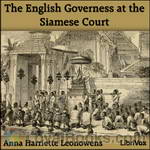 The English Governess at the Siamese Court
The English Governess at the Siamese Court
1862 Anna Leonowens accepted an offer made by the Siamese consul in Singapore, Tan Kim Ching, to teach the wives and children of Mongkut, king of Siam. The king wished to give his 39 wives and concubines and 82 children a modern Western education on scientific secular lines, which earlier missionaries’ wives had not provided. Leonowens sent her daughter Avis to school in England, and took her son Louis with her to Bangkok. She succeeded Dan Beach Bradley, an American missionary, as teacher to the Siamese court... | |
By: Anne MacLanahan Grenfell (1885-1938) | |
|---|---|
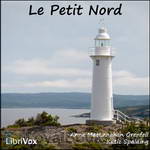 Le Petit Nord
Le Petit Nord
A collection of letters from Anne (MacLanahan) Grenfell, future wife of Sir Wilfred Grenfell, regarding her year of missionary service at the orphanage in St. Anthony, Newfoundland and Labrador, Canada. | |
By: Annie Besant (1847-1933) | |
|---|---|
 Annie Besant
Annie Besant
In her autobiography, Annie Besant poignantly writes of her search for the truth of what she believed in, leaving Christianity behind to embrace Atheism, and ultimately finding her peace in Theosophy, which she became interested in after meeting Helena Blavatsky. She moved to India to better study Theosophical ideas and this is where she made her home until her death. She was a gifted orator and writer, often speaking and writing on her religious beliefs, as well as women's rights and social reform... | |
 My Path to Atheism
My Path to Atheism
My Path to Atheism is a remarkable document in many ways, not least that it was written by a woman in Victorian England, not the most open free-thinking of societies, especially for women at that time. It needed a remarkable woman to write such a revolutionary and to 19th century minds, heretical document in a society where the Church had such a stronghold. Besant herself was originally married to a clergyman, but her increasingly anti-religious views and writings led to a legal separation. She went... | |
By: Annie Fellows Johnston (1863-1931) | |
|---|---|
 Little Colonel's Knight Comes Riding
Little Colonel's Knight Comes Riding
In the previous book in this series, Lloyd was the maid of honor, but now it will be the Little Colonel's turn to be the bride. But who will be the groom? Will it be one of our old friends from previous books such as Malcolm MacIntyre, Rob Moore, Alex Shelby, Phil Tremont, or Jack Ware . . .or perhaps a new Knight that comes riding! | |
 Mary Ware in Texas
Mary Ware in Texas
A continuation of the adventures of Mary Ware, the chum of the Little Colonel and the heroine of the tenth volume in the "Little Colonel" series. Mary Ware goes to Texas where during a winter with her mother and Jack in San Antonio and the hill country she has new and varied experiences which are entertainingly set down for the enjoyment of young readers. | |
By: Anonymous | |
|---|---|
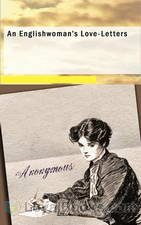 An Englishwoman's Love-Letters
An Englishwoman's Love-Letters
It need hardly be said that the woman by whom these letter were written had no thought that they would be read by anyone but the person to whom they were addressed. But a request, conveyed under circumstances which the writer herself would have regarded as all-commanding, urges that they should now be given to the world; and, so far as is possible with a due regard to the claims of privacy, what is here printed presents the letters as they were first written in their complete form and sequence. From book explaination | |
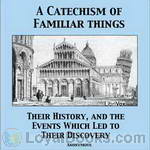 A Catechism of Familiar Things; Their History, and the Events Which Led to Their Discovery
A Catechism of Familiar Things; Their History, and the Events Which Led to Their Discovery
This book, a reprint of a successful English publication, has been so enlarged as to be to all intents and purposes new. It has been carefully revised by a Reverend gentleman, who for some time filled the chair of Physics and Chemistry in one of our colleges. Recent inventions and improvements are described in a simple, popular style, so as to be easily understood by all, and short notices are given of prominent inventors and scientists. The paragraphs relating to doctrinal matters conform in every respect to the teachings of the Church... | |
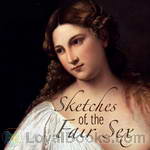 Sketches Of The Fair Sex
Sketches Of The Fair Sex
Sketches of the fair sex, in all parts of the world. To which are added rules for determining the precise figure, the degree of beauty, the habits, and the age of women, notwithstanding the aids and disguise of dress. It is our design to present a pleasing and interesting miscellany, which will serve to beguile the leisure hour, and will at the same time couple instruction with amusement. We have used but little method in the arrangement: Choosing rather to furnish the reader with a rich profusion... | |
 The American Housewife
The American Housewife
This cookbook and reference guide leads the American Housewife through how to make everything from Meat to Common Drinks, as well as helpful tips and tricks for any housewife! Also included in this fine text are sections on Cooking for The Sick, and how to make your own: Essences, Perfumes, Dyes and Soaps. This work also features an extensive section on The Art of Carving-Which covers anything you might need to carve! | |
 English as She is Wrote
English as She is Wrote
"...Showing Curious ways in which the English Language may be made to convey Ideas or obscure them." A collection of unintentionally humorous uses of the English language. Sections of the work: How she is wrote by the Inaccurate, By Advertisers and on Sign-boards, For Epitaphs, By Correspondents, By the Effusive, How she can be oddly wrote, and By the Untutored. | |
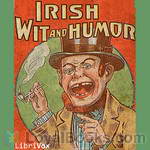 Irish Wit and Humor
Irish Wit and Humor
Excerpted anecdotes from the biographies of Swift, Curran, O'Leary and O'Connell, relating humorous snippets of politics in 18th and 19th century Ireland. For some these may be poignant in addition to being humorous and for others they may be humorous in addition to being poignant. ( | |
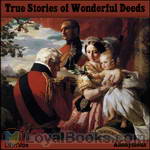 True Stories of Wonderful Deeds
True Stories of Wonderful Deeds
37 short pieces perfect for newer recorders. These one page Stories of (mostly) Wonderful Deeds were written for Little Folk to teach them about famous incidents in their history. Bonnie Prince Charlie, Nelson and Hardy, Bruce and the Spider, David Livingston, Canute, Sir Philip Sydney, and Elizabeth and Raleigh are just some of the well known people and incidents covered in short stories. | |
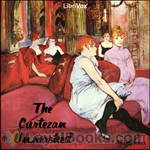 The Curtezan Unmasked
The Curtezan Unmasked
"The Curtezan unmasked or, the Whoredomes of Jezebel Painted to the Life: With Antidotes against them, or Heavenly Julips to cool Men in the Fever of Lust" is a fire-and-brimstone polemic by "A Spiritual Physician" to persuade young men not to succumb to harlotry and its accompanying perils. (Introduction by Denny Sayers) | |
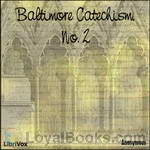 Baltimore Catechism, No. 2 -- Catechism of Christian Doctrine
Baltimore Catechism, No. 2 -- Catechism of Christian Doctrine
A catechism is a summary of the principles of Christian religion and articles of the faith. The Baltimore Catechism specifically was the de facto standard Catholic school text in the United States from 1885 to the late 1960s. It was the first such catechism written for Catholics in North America, replacing a translation of Bellarmine's Small Catechism. The Baltimore Catechism remained in use in nearly all Catholic schools until many moved away from catechism-based education, though it is still used up to this day in some. (Summary by Wikipedia) | |
 365 Luncheon Dishes A Luncheon Dish for Every Day in the Year
365 Luncheon Dishes A Luncheon Dish for Every Day in the Year
| |
 The Young Lady's Equestrian Manual
The Young Lady's Equestrian Manual
| |
 Watch and Clock Escapements A Complete Study in Theory and Practice of the Lever, Cylinder and Chronometer Escapements, Together with a Brief Account of the Origin and Evolution of the Escapement in Horology
Watch and Clock Escapements A Complete Study in Theory and Practice of the Lever, Cylinder and Chronometer Escapements, Together with a Brief Account of the Origin and Evolution of the Escapement in Horology
| |
 A Book of Fruits and Flowers
A Book of Fruits and Flowers
| |
 The Community Cook Book
The Community Cook Book
| |
 Vaughan's Vegetable Cook Book (4th edition) How to Cook and Use Rarer Vegetables and Herbs
Vaughan's Vegetable Cook Book (4th edition) How to Cook and Use Rarer Vegetables and Herbs
| |
 Illustrated Science for Boys and Girls
Illustrated Science for Boys and Girls
| |
 Tame Animals
Tame Animals
| |
 Zenith Television Receiver Operating Manual
Zenith Television Receiver Operating Manual
| |
 Marvel Carbureter and Heat Control As Used on Series 691 Nash Sixes Booklet S
Marvel Carbureter and Heat Control As Used on Series 691 Nash Sixes Booklet S
| |
 Installation and Operation Instructions For Custom Mark III CP Series Oil Fired Unit
Installation and Operation Instructions For Custom Mark III CP Series Oil Fired Unit
| |
 Fires and Firemen: from the Eclectic Magazine of Foreign Literature, Science and Art, Vol XXXV No. 1, May 1855
Fires and Firemen: from the Eclectic Magazine of Foreign Literature, Science and Art, Vol XXXV No. 1, May 1855
| |
By: Anonymous, attributed to Kathleen Luard (c.1872) | |
|---|---|
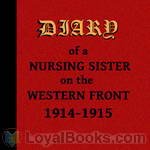 Diary of a Nursing Sister on the Western Front 1914-1915
Diary of a Nursing Sister on the Western Front 1914-1915
The title is, I think, self explanatory. The nurse in question went out to France at the beginning of the war and remained there until May 1915 after the second battle of Ypres when she went back to a Base Hospital and the diary ceases. Although written in diary form, it is clearly taken from letters home and gives a vivid if sometimes distressing picture of the state of the casualties occasioned during that period. After a time at the General Hospital in Le Havre she became one of the three or four sisters working on the ambulance trains which fetched the wounded from the Clearing Hospitals close to the front line and took them back to the General Hospitals in Boulogne, Rouen and Le Havre. | |
By: Anthony Boucherie | |
|---|---|
 The Art of Making Whiskey So As to Obtain a Better, Purer, Cheaper and Greater Quantity of Spirit, From a Given Quantity of Grain
The Art of Making Whiskey So As to Obtain a Better, Purer, Cheaper and Greater Quantity of Spirit, From a Given Quantity of Grain
| |
By: Anthony Trollope (1815-1882) | |
|---|---|
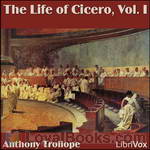 The Life of Cicero
The Life of Cicero
Marcus Tullius Cicero (106-43BC) was an orator, statesman, philosopher and prolific correspondent, who rose as a ‘new man’ in Rome in the turbulent last years of its republican government. Anthony Trollope, best known as a novelist, admired Cicero greatly and wrote this biography late in life in order to argue his virtues against authors who had granted him literary greatness but questioned his strength as a politician and as a man. He takes a personal approach, affording us an insight into his own mind and times as well as those of his subject... | |
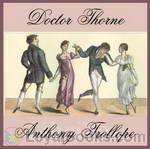 Doctor Thorne
Doctor Thorne
MANUAL OF SURGERY, OXFORD MEDICAL PUBLICATIONSBY ALEXIS THOMSON, F.R.C.S.Ed.PREFACE TO SIXTH EDITION Much has happened since this Manual was last revised, and many surgical lessons have been learned in the hard school of war. Some may yet have to be unlearned, and others have but little bearing on the problems presented to the civilian surgeon. Save in its broadest principles, the surgery of warfare is a thing apart from the general surgery of civil life, and the exhaustive literature now available on every aspect of it makes it unnecessary that it should receive detailed consideration in a manual for students... | |
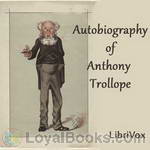 Autobiography of Anthony Trollope
Autobiography of Anthony Trollope
Anthony Trollope's autobiography will delight you whether or not you've read (or listened to) any of his many works. His honest if self-deprecating tone is at times hilarious and at times piteously moving. His detailed descriptions of his writing process and his philosophy of writing as work rather than art are fascinating. Fans of Trollope will enjoy learning the man's perceptions of his novels' shortcomings and triumphs. Anyone will appreciate learning about his years devoted to churning out literature for profit while working full time with the post office. | |
 Hunting Sketches
Hunting Sketches
| |
 Alice Dugdale
Alice Dugdale
An ordinary village girl's plans for the future with her long-standing beau are threatened when he is seen to be an attractive prospect by a local noble family Trollope's novella works through the consequences with typical affection and sensitivity. - Summary by Anthony Ogus | |
By: Antonia Isola (1876-) | |
|---|---|
 Simple Italian Cookery
Simple Italian Cookery
| |
By: Antonio Colmenero de Ledesma (d. 17th century) | |
|---|---|
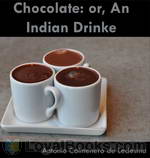 Chocolate: or, An Indian Drinke
Chocolate: or, An Indian Drinke
The Author sings the praises of Chocolate. “By the wise and Moderate use whereof, Health is preserved, Sicknesse Diverted, and Cured, especially the Plague of the Guts; vulgarly called _The New Disease_; Fluxes, Consumptions, & Coughs of the Lungs, with sundry other desperate Diseases. By it also, Conception is Caused, the Birth Hastened and facilitated, Beauty Gain’d and continued.” | |
By: Apicius | |
|---|---|
 Cookery and Dining in Imperial Rome
Cookery and Dining in Imperial Rome
| |
By: Archibald Forbes (1838-1900) | |
|---|---|
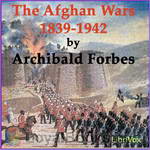 The Afghan Wars 1839-42 and 1878-80, Part 1
The Afghan Wars 1839-42 and 1878-80, Part 1
The First Anglo–Afghan War was fought between British India and Afghanistan from 1839 to 1842. It was one of the first major conflicts during the Great Game, the 19th century competition for power and influence in Central Asia between the United Kingdom and Russia, and also marked one of the worst setbacks inflicted on British power in the region after the consolidation of British Raj by the East India Company. | |
By: Archibald Geikie (1835-1924) | |
|---|---|
 Scottish Reminiscences
Scottish Reminiscences
Archibald Geikie was a geologist in Scotland by profession, and a writer. While most of his writings were professional, this is a more personal book telling some of the history of Scotland, Archibald's memories, experiences and recollections there as well as stories he was told by people he met. He has a good sense of humour which shines through. - Summary by Jmbau13 | |
By: Archibald Williams | |
|---|---|
 How it Works Dealing in simple language with steam, electricity, light, heat, sound, hydraulics, optics, etc., and with their applications to apparatus in common use
How it Works Dealing in simple language with steam, electricity, light, heat, sound, hydraulics, optics, etc., and with their applications to apparatus in common use
| |
By: Aristotle (384-322 BC) | |
|---|---|
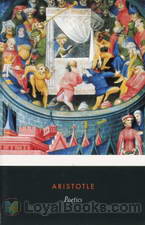 Poetics
Poetics
Aristotle’s Poetics from the 4th century B.C. aims to give a short study of storytelling. It discusses things like unity of plot, reversal of situation, and character in the context of Greek tragedy, comedy and epic poetry. But it still applies today. It is especially popular with screenwriters as seen in many script gurus’ how-to books. | |
By: Arnold Bennett (1867-1931) | |
|---|---|
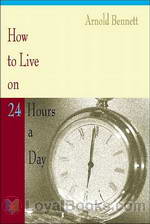 How to Live on Twenty-Four Hours a Day
How to Live on Twenty-Four Hours a Day
This book is a classic piece on self improvement teaching you to live to the fullest. Judging from the title of the book, the reader might expect that the book is a manual on how to manage your time better. Nothing could be further from the truth, this book is a flowery and witty self help book aimed at helping readers improve the quality of their lives, in fact it is one of the firsts of its kind in the world. Bennett describes the twenty four hours in a day as a miracle and that it should be used for the betterment of health, wealth, respect, pleasure and contentment... | |
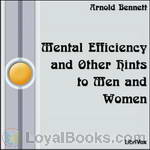 Mental Efficiency and Other Hints to Men and Women
Mental Efficiency and Other Hints to Men and Women
Mental Efficiency and Other Hints to Men and Women is one of the many self help books that Bennett wrote, the most famous of these being How to Live 24 Hours a Day. It is highly readable, amusing and offers wisdom in an extremely palatable form. Bennett's gift for analysis and his knowledge of philosophy and psychology make this book a valuable treasure trove of handy hints to improve our lives. Though it was first published in 1911, it remains as relevant, wise and useful as it did more than a hundred years ago... | |
 Literary Taste: How to Form It
Literary Taste: How to Form It
Arnold Bennett describes a method for enjoying literature, and suggests the contents of a comprehensive library. Chapters 1-10 and 14 describe his method for learning to enjoy literature. Chapters 11, 12, and 13 contain detailed lists of the 337 volumes required to complete a comprehensive library of English works. This reading is from the 1913 version at Project Gutenberg, and so does not contain the revisions made by Swinnerton for the 1939 edition, which included authors of the early Twentieth Century. Swinnerton’s revisions are available from Wikipedia. | |
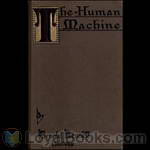 The Human Machine
The Human Machine
Bennett asks us to consider our brains as the most wonderful machine, a machine which is the only thing in this world that we can control. As he writes: "I am simply bent on calling your attention to a fact which has perhaps wholly or partially escaped you -- namely, that you are the most fascinating bit of machinery that ever was."As ever, his prose is honeyed, his thoughts inspired, and his advice as relevant today as when it was written. (Introduction by Ruth Golding) | |
By: Arthur Cheney Train (1875-1945) | |
|---|---|
 Courts and Criminals
Courts and Criminals
| |
By: Arthur Empey | |
|---|---|
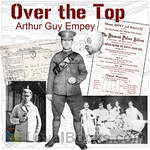 Over the Top
Over the Top
Arthur Guy Empey was an American who responded to the sinking of the Lusitania by enlisting with the British Army to fight in France. His experiences in the trenches, including his ultimate wounding and convalescence, became this book. When published in 1917, it was a major hit and helped the recruiting effort when America entered the Great War. If you’ve heard of the horror of trench warfare in WWI and want to see it from below dirt level, Empey offers it all here. Also included is Empey’s popular “Tommy’s Dictionary of the Trenches” which humorously demistifies the slang used by the British soldier. | |
By: Arthur Gray (1859-) | |
|---|---|
 Little Tea Book
Little Tea Book
After all, tea is the drink! Domestically and socially it is the beverage of the world. There may be those who will come forward with their figures to prove that other fruits of the soil—agriculturally and commercially—are more important. Perhaps they are right when quoting statistics. But what other product can compare with tea in the high regard in which it has always been held by writers whose standing in literature, and recognized good taste in other walks, cannot be questioned? (From the Preface) A Little Tea Book is a clever book about all things tea- Eastern and Western tea history, stories, culture, quotes, and even poetry. A good little read for tea lovers everywhere. | |
By: Arthur Henry Chamberlain (1870-1942) | |
|---|---|
 The Condition and Tendencies of Technical Education in Germany
The Condition and Tendencies of Technical Education in Germany
| |
By: Arthur L. Fowler (1881-) | |
|---|---|
 Fowler's Household Helps Over 300 Useful and Valuable Helps About the Home, Carefully Compiled and Arranged in Convenient Form for Frequent Use
Fowler's Household Helps Over 300 Useful and Valuable Helps About the Home, Carefully Compiled and Arranged in Convenient Form for Frequent Use
| |
By: Arthur Schopenhauer (1788-1860) | |
|---|---|
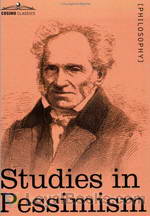 Studies in Pessimism
Studies in Pessimism
Arthur Schopenhauer, an early 19th century philosopher, made significant contributions to metaphysics, ethics, and aesthetics. His work also informed theories of evolution and psychology, largely through his theory of the will to power – a concept which Nietzsche famously adopted and developed. Despite this, he is today, as he was during his life, overshadowed by his contemporary, Hegel. Schopenhauer’s social/psychological views, put forth in this work and in others, are directly derived from his metaphysics, which was strongly influenced by Eastern thought... | |
By: Arthur William Knapp (1880-1939) | |
|---|---|
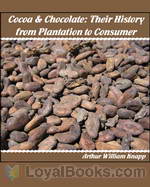 Cocoa and Chocolate: Their History from Plantation to Consumer
Cocoa and Chocolate: Their History from Plantation to Consumer
As that heavenly bit of chocolate melts in our mouths, we give little thought as to where it came from, the arduous work that went in to its creation, and the complex process of its maturation from a bean to the delicacy we all enjoy. This “little book” details everything you have ever wanted to know (and some things you never knew you wanted to know) about cocoa and chocolate from how the trees are planted and sustained to which countries produce the most cacao beans. Do cacao beans from various... | |
By: Augustus De Morgan (1806-1871) | |
|---|---|
 A Budget of Paradoxes, Volume I
A Budget of Paradoxes, Volume I
| |
By: Austin Craig | |
|---|---|
 Lineage, Life and Labors of Jose Rizal
Lineage, Life and Labors of Jose Rizal
LINEAGE LIFE AND LABORS of JOSE RIZAL PHILIPPINE PATRIOTBY AUSTIN CRAIGINTRODUCTION In writing a biography, the author, if he be discriminating, selects, with great care, the salient features of the life story of the one whom he deems worthy of being portrayed as a person possessed of preeminent qualities that make for a character and greatness. Indeed to write biography at all, one should have that nice sense of proportion that makes him instinctively seize upon only those points that do advance his theme... | |
By: Australia. Dept. of External Affairs | |
|---|---|
 Australia, The Dairy Country
Australia, The Dairy Country
| |
 Wheat Growing in Australia
Wheat Growing in Australia
| |
By: Australia. Queensland. Department of Ports and Harbours | |
|---|---|
 Report on the Department of Ports and Harbours for the Year 1890-91
Report on the Department of Ports and Harbours for the Year 1890-91
| |
By: B. W. Jones | |
|---|---|
 The Peanut Plant Its Cultivation And Uses
The Peanut Plant Its Cultivation And Uses
| |
By: Babcock & Wilcox Company | |
|---|---|
 Steam, Its Generation and Use
Steam, Its Generation and Use
| |
By: Baron Paul Henri Thiry d'Holbach (1723-1789) | |
|---|---|
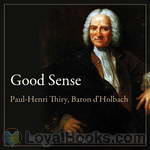 Good Sense
Good Sense
In 1770, Baron D'Holbach published his masterpiece, "Systeme de la Nature", which for a long time passed as the posthumous work of M. de Mirabaud. That text-book of "Atheistical Philosophy" caused a great sensation, and two years later, 1772, the Baron published this excellent abridgment of it, freed from arbitrary ideas; and by its clearness of expression, facility, and precision of style, rendered it most suitable for the average student. This text is based on an undated English translation of "Le Bon Sens" published c. 1900. The name of the translator was not stated. | |
By: Baxter Perry Smith (1829-1884) | |
|---|---|
 The History of Dartmouth College
The History of Dartmouth College
| |
By: Beazley | |
|---|---|
 Prince Henry the Navigator
Prince Henry the Navigator
PRINCE HENRY THE NAVIGATORBy Evelyn Abbot, M.A.INTRODUCTION.The Greek And Arabic Ideas Of The World, As The Chief Inheritance Of The Christian Middle Ages In Geographical Knowledge. Arabic science constitutes one of the main links between the older learned world of the Greeks and Latins and the Europe of Henry the Navigator and of the Renaissance. In geography it adopted in the main the results of Ptolemy and Strabo; and many of the Moslem travellers and writers gained some additional hints from Indian, Persian, and Chinese knowledge; but, however much of fact they added to Greek cartography, they did not venture to correct its postulates... | |
By: Ben Macomber | |
|---|---|
 The Jewel City
The Jewel City
| |
By: Benedetto Croce (1866-1952) | |
|---|---|
 Aesthetic as Science of Expression and General Linguistic
Aesthetic as Science of Expression and General Linguistic
One of the earliest works of this Italian philosopher and literary critic, Aesthetic as Science of Expression and General Linguistic marks the beginning of Croce's elaboration of his highly influential ideas of aesthetics. Croce defines art in terms of intuition and expression, thus replacing beauty as the primary criterion for aesthetic evaluation. | |
By: Benedict de Spinoza (1632-1677) | |
|---|---|
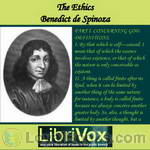 The Ethics
The Ethics
The Ethics is a philosophical book written by Baruch Spinoza. It was written in Latin. Although it was published posthumously in 1677, it is his most famous work, and is considered his magnum opus.In The Ethics, Spinoza attempts to demonstrate a "fully cohesive philosophical system that strives to provide a coherent picture of reality and to comprehend the meaning of an ethical life. Following a logical step-by-step format, it defines in turn the nature of God, the mind, human bondage to the emotions, and the power of understanding -- moving from a consideration of the eternal, to speculate upon humanity's place in the natural order, freedom, and the path to attainable happiness... | |
By: Benjamin Franklin (1706-1790) | |
|---|---|
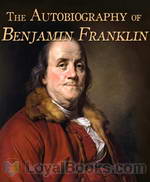 The Autobiography of Benjamin Franklin
The Autobiography of Benjamin Franklin
Inventor, author, printer, scientist, politician, diplomat—all these terms do not even begin to fully describe the amazing and multitalented, Benjamin Franklin who was of course also one of the Founding Fathers of America. At the age of 75, in 1771 he began work on what he called his Memoirs. He was still working on it when he died in 1790 and it was published posthumously, entitled An Autobiography of Benjamin Franklin. The book had a complicated and controversial publication history. Strangely enough, the first volume only was first published in French, in Paris in 1791... | |
By: Benjamin Franklin Cresson (1873-1923) | |
|---|---|
 Transactions of the American Society of Civil Engineers, vol. LXVIII, Sept. 1910 The New York Tunnel Extension of the Pennsylvania Railroad The Terminal Station - West
Transactions of the American Society of Civil Engineers, vol. LXVIII, Sept. 1910 The New York Tunnel Extension of the Pennsylvania Railroad The Terminal Station - West
| |
By: Benjamin N. (Benjamin Nathan) Cardozo (1870-1938) | |
|---|---|
 The Altruist in Politics
The Altruist in Politics
| |
By: Benvenuto Cellini ((1500-1571)) | |
|---|---|
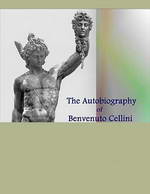 The Autobiography of Benvenuto Cellini
The Autobiography of Benvenuto Cellini
Cellini’s autobiographical memoirs, which he began writing in Florence in 1558, give a detailed account of his singular career, as well as his loves, hatreds, passions, and delights, written in an energetic, direct, and racy style. They show a great self-regard and self-assertion, sometimes running into extravagances which are impossible to credit. He even writes in a complacent way of how he contemplated his murders before carrying them out. He writes of his time in Paris: Parts of his tale recount... | |
By: Bertram O. Stull | |
|---|---|
 U.S. Patent 4,293,314: Gelled Fuel-Air Explosive October 6, 1981.
U.S. Patent 4,293,314: Gelled Fuel-Air Explosive October 6, 1981.
| |
By: Bertrand Russell (1872-1970) | |
|---|---|
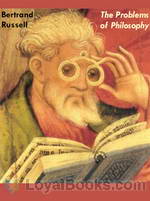 The Problems of Philosophy
The Problems of Philosophy
Published in 1912, The Problems of Philosophy by Bertrand Russell is one of his most popular books. It renders philosophical issues and questions in a way in which they become relevant and accessible to the man or woman on the street, provoking them to devote time and effort into thinking about these aspects of life. Here, the great philosopher and humanist thinker Bertrand Russell examines the importance of empirical (that which can be verified by observation or experience rather than deduced from logic or reasoning) thinkers like David Hume and George Berkeley the Anglo-Irish philosopher and scientist... | |
 Proposed Roads to Freedom
Proposed Roads to Freedom
Bertrand Russell, 3rd Earl Russell (1872 – 1970) was a British philosopher, logician, mathematician, political activist and Nobel laureate. He led the British “revolt against idealism” in the early 1900s and is considered one of the founders of analytic philosophy along with his predecessor Gottlob Frege and his protégé Ludwig Wittgenstein. In this book, written in 1918, he offers his assessment of three competing streams in the thought of the political left: Marxian socialism, anarchism and syndicalism. | |
By: Bill Nye | |
|---|---|
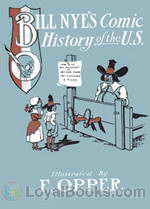 Comic History of the United States
Comic History of the United States
For American journalist and humorist Edgar Wilson Nye who wrote under the pen name Bill Nye in the late 19th century, facts are not to be presented in their newborn, bare state. They should be properly draped and embellished before they can be presented before the public. Hence, in the Comic History of the United States published in 1894, he gives his readers the facts. But in a bid to make the historical figures more human he describes them as “people who ate and possibly drank, people who were born, flourished and died, not grave tragedians posing perpetually for their photographs... | |
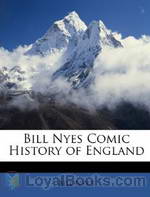 Comic History of England
Comic History of England
If you thought history was dull, dry and boring, you haven't read Bill Nye's books! He brings wit, humor, satire, irony and sheer nonsensical fun into the subject, making it both entertaining and memorable. The Comic History of England was published posthumously in 1896 after the writer's tragic and untimely death half-way through the project. Hence it remains incomplete and covers the history of the island nation only up to the Tudor period. However, beginning with Julius Caesar, the Roman invasion of Britain, the Druids and Stonehenge, this book is still a rib-tickling ride through the centuries... | |
By: Bliss Perry (1860-1954) | |
|---|---|
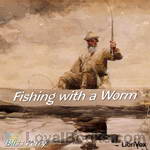 Fishing with a Worm
Fishing with a Worm
Fishing with a Worm by Bliss Perry includes the poignant and philisophical observations of a fly fisherman lured by the worm. Bliss Perry was a professor of literature at Princeton and Harvard Universities and spent time in Vermont writing and fly fishing. | |
By: Bob Brown (1886-1959) | |
|---|---|
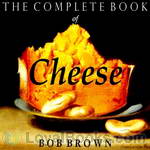 The Complete Book of Cheese
The Complete Book of Cheese
This recording was released to coincide with National Cheese Lovers’ Day 2010 in the United States. Robert Carlton Brown (1886 – 1959), after living thirty years in as many foreign lands and enjoying countless national cheeses at the source, returned to New York and summed them all up in this book. After majoring in beer and free lunch from Milwaukee to Munich, Bob celebrated the end of Prohibition with a book called Let There Be Beer! and then decided to write another about Beer’s best friend, Cheese... | |
By: Bolton Hall (1854-1938) | |
|---|---|
 Three Acres and Liberty
Three Acres and Liberty
| |
By: Booker T. Washington (1856-1915) | |
|---|---|
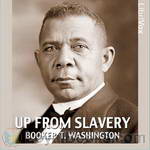 Up From Slavery
Up From Slavery
Up From Slavery is the 1901 autobiography of Booker T. Washington detailing his slow and steady rise from a slave child during the Civil War, to the difficulties and obstacles he overcame to get an education at the new Hampton University, to his work establishing vocational schools—most notably the Tuskegee Institute in Alabama—to help black people and other disadvantaged minorities learn useful, marketable skills and work to pull themselves, as a race, up by the bootstraps. He reflects on the generosity of both teachers and philanthropists who helped in educating blacks and native Americans... | |
 Tuskegee & Its People: Their Ideals and Achievements
Tuskegee & Its People: Their Ideals and Achievements
| |
By: Boston (Mass.). School Committee | |
|---|---|
 Schedule of Salaries for Teachers, members of the Supervising staff and others. January 1-August 31, 1920, inclusive
Schedule of Salaries for Teachers, members of the Supervising staff and others. January 1-August 31, 1920, inclusive
| |
By: Bradford Torrey (1843-1912) | |
|---|---|
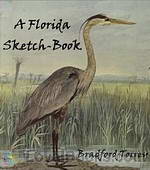 A Florida Sketch-Book
A Florida Sketch-Book
This is a series of late-19th Century essays about Florida’s flora & fauna written by a Massachusetts-based naturalist. | |
By: Bradley A. (Bradley Allen) Fiske (1854-1942) | |
|---|---|
 The Navy as a Fighting Machine
The Navy as a Fighting Machine
| |
By: Brandon Head | |
|---|---|
 The Food of the Gods A Popular Account of Cocoa
The Food of the Gods A Popular Account of Cocoa
| |
By: Brendan P. Kehoe (1970-) | |
|---|---|
 Zen and the Art of the Internet
Zen and the Art of the Internet
| |
By: British Parliament | |
|---|---|
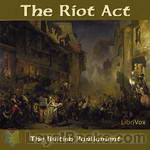 The Riot Act
The Riot Act
The Riot Act was passed by the British Parliament in 1714, the first year of the reign of George I, and came into effect in August 1715. This was a time of widespread social disturbance, as the preamble describes; the Act sought to put an end to this. A group of twelve or more people, “being unlawfully, riotously and tumultuously assembled”, would be read a proclamation; they must disperse within an hour, on pain of death. The same fate would befall anyone preventing the reading of the proclamation, or damaging buildings while on a riot... | |
By: Brooks Adams (1848-1927) | |
|---|---|
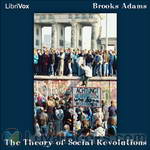 The Theory of Social Revolutions
The Theory of Social Revolutions
Brooks Adams (1848- 1927), was an American historian and a critic of capitalism. He believed that commercial civilizations rise and fall in predictable cycles. First, masses of people draw together in large population centers and engage in commercial activities. As their desire for wealth grows, they discard spiritual and creative values. Their greed leads to distrust and dishonesty, and eventually the society crumbles. In The Law of Civilisation and Decay (1895), Adams noted that as new population centers emerged in the west, centers of world trade shifted from Constantinople to Venice to Amsterdam to London... | |
By: Bruce S. Wright | |
|---|---|
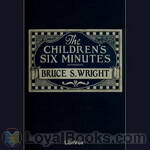 The Children's Six Minutes
The Children's Six Minutes
This is a nice collection of 52 kid-aimed sermons by missionary Wright while he served in the Philippines in the World War I era. Each offers a slice-of-life reference point, an appropriate Bible verse, and hymn. | |
By: BS Murthy | |
|---|---|
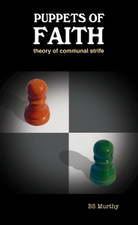 Puppets of Faith: Theory of Communal Strife
Puppets of Faith: Theory of Communal Strife
When a bunch of apparently non-practicing Musalmans headed by Mohamed Atta launched that fidayeen attack on New York’s World Trade Centre that Sep 11, the world at large, by then familiar with the ways of the Islamic terrorism, was at a loss to fathom the unthinkable source of that unexpected means of the new Islamist scourge. The symptoms of a latent terrorist in the Muslim youth can be traced to the sublimity of Muhammad's preaching’s in Mecca and the severity of his Medina sermons make Islam a Janus-faced faith that forever bedevils the mind of the Musalmans... | |
By: Burton Willis Potter (1843-1927) | |
|---|---|
 The Road and the Roadside
The Road and the Roadside
| |
By: C. A. Bogardus | |
|---|---|
 One Thousand Secrets of Wise and Rich Men Revealed
One Thousand Secrets of Wise and Rich Men Revealed
| |
By: C. C. (Christopher Columbus) Andrews (1829-1922) | |
|---|---|
 Reflections on the Operation of the Present System of Education, 1853
Reflections on the Operation of the Present System of Education, 1853
| |
By: C. C. James (1863-1916) | |
|---|---|
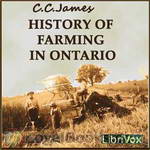 History of Farming in Ontario
History of Farming in Ontario
This paper takes the reader through the early settlement from 1783 to the modern period of 1888-1912. We see how farming and farm industries developed and how the population was distributed during these times. We see the trends of settlers moving into the Urban centers instead of rural and how the farm industries (making cheese, butter, wool, etc) move off the farm to the city factories. Excerpt: “The farmer’s wife in those days was perhaps the most expert master of trades ever known. She could spin and weave, make a carpet or a rug, dye yarns and clothes, and make a straw hat or a birch broom... | |
By: C. H. W. (Claude Hermann Walter) Johns (1857-1920) | |
|---|---|
 Babylonian and Assyrian Laws, Contracts and Letters
Babylonian and Assyrian Laws, Contracts and Letters
| |
By: C. Houston (Charles Houston) Goudiss (1880-) | |
|---|---|
 Foods That Will Win The War And How To Cook Them (1918)
Foods That Will Win The War And How To Cook Them (1918)
| |
By: C. K. (Charles Kenneth) Leith (1875-1956) | |
|---|---|
 The Economic Aspect of Geology
The Economic Aspect of Geology
| |